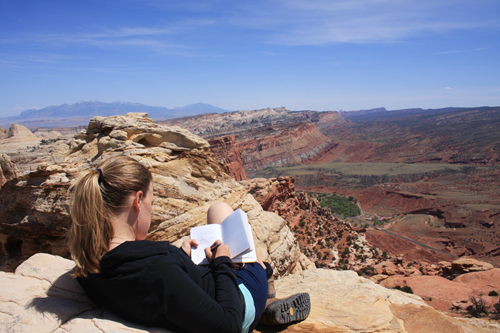Sedimentology is the study of sedimentary rocks – the layered rocks that form through erosion and transport and deposition of sediment and biological detritus. The sediments are transported by water,

Photo by: Oliver Hinchey
wind, ice or gravity and accumulate in depressions, or basins, and build up kilometers of stacked rock layers atop each other. Sedi -mentary rocks actually comprise the vast majority or rocks on the earth’s surface (>70%) and there is an enormous variety within these rocks which hold within them information on paleogeography, the history of life, and climates past.
Sedimentology spans across a huge variety of scales, from microscopic and lab-analysis, to outcrop, to kilometer wide and thick successions in seismic data, and can be studied using a variety of geological and geophysical methods.
The study of sedimentary rocks provides information on depositional processes and environments, and post-depositional transformation. This information provides insight into composition and structure, and lateral and horizontal changes and variations of these rocks which is useful for example in finding and characterizing suitable and safe storage sites for CO2, and in engineering and construction of roads, houses and tunnels. Sedimentary basins also host a vast amount of geological resources including fossil fuels, drinking water, geothermal water, minerals, ores and building materials, and the study of sedimentology can contribute to more sustainable and resource intensive extraction or use of resources.